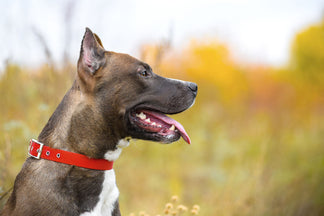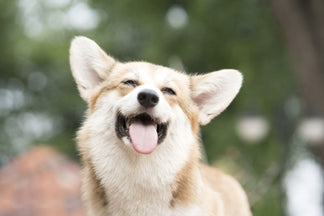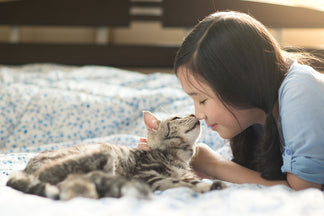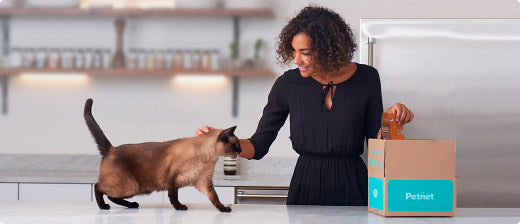Anticipation, excitement, overwhelmed, impatience, fun, frustration, laughter, worry, hilarity, exhausted, enjoyment, love. These are a few examples of the range of feelings that new puppy owners experience in the first few months of dog ownership.
Raising a puppy is hard work and don’t ever let anyone tell you it’s not. The rewards are great, but as with anything, you have to put in the work to reap those rewards. To help you with your new pup, we’ve read through tons of “How-To” manuals and guides to pull out the ten best tips for any new puppy owner.
1. Do your research before you get a new puppy. Make sure the breed you select is compatible with your family’s lifestyle and that the level of ongoing care fits into your budget and schedule.
2. Outfit your home appropriately. New puppies are curious and energetic adventure seekers. They will climb on things, eat things and stick their noses in places they shouldn’t. Just as you kid-proof your house, you need to puppy-proof it too. Get a crate that they can call home, get baby gates to keep them out of areas of the house you don’t want them in. Keep them and your things safe.
3. Determine the potty schedule. Begin the very first days by taking your pup out about every 1-2 hours, directly after their meal and first thing when they wake up. Take them to the same spot in the yard and when they do their business, make a big deal out of what a good dog they are. Have potty pads in the house in a single spot and if you see them starting to squat in the house quickly take them to that potty pads and again praise them. If they have an accident in the house clean it thoroughly as they will return to that spot again. Punishing them for having an accident is ineffective. Don’t do it.
4. Start a daily routine. Dogs do best without surprises. Breakfast at the same time, daily walks, naps, playtime, dinner, maybe another walk and then bedtime. The more you can stick to a routine, the faster they will get potty trained and acclimated to the rhythms of their new home. Practice new behaviors like leaving them alone so they get used to it and don’t develop separation anxiety.
5. Socialization is one of the most important responsibilities you have. You need to expose your new pup to the world. That means meeting new people and learning to be friendly with them. It means learning to interact appropriately with other dogs, with cats or other animals that may be in their life, including squirrels, rabbits and other wildlife. Enrolling in a puppy class is always a good idea so they can interact with other dogs and learn a few commands as well. It’s also good for the puppy parent to commiserate with and learn from other new parents.
6. What you feed and how much you feed will impact your pup from day one. You want to feed the highest quality food that you can afford to keep your pup as healthy as you can throughout his/her life. You can use our food database (http://food.petnet.io) to help you decide which food might be best for your breed. Or you can simply be a smart consumer, read the label and buy the one with the healthiest ingredients. Puppies should eat several (3-4) small meals a day. As they grow, you can decrease that to twice a day or even once a day if you’d prefer.
7. Get your new pup in to see your vet as soon as possible. First, you want to get them microchipped so if they get away from you, you can find them again. But more importantly, you want to get a clean bill of health and to get them set up for all the proper immunizations they require.
8. You need to have plenty of toys around for a pup. Mainly because they love to play, but you also want to keep them away from your shoes and furniture. Be sure and have soft fluffy toys with squeakers but also some harder toys that they can chew on.
9. New puppies have baby teeth, just like humans, but puppy’s baby teeth are very sharp, like little needles. They also love to bite things so it’s important to have a teething plan. Many people recommend frozen carrots for them to chew on. The cold helps numb the pain and the carrots are low calorie, good for them snacks.
10. One of the most important things to have when you get a new puppy is a set of rules. Puppies are like little kids, they will push the boundaries just to see what they can get away with. It’s imperative to set boundaries for them and enforce them. It’s also critical to begin their training early, the earlier the better. Just knowing the basics of sit, stay, come will save lots of headaches in the future.
Good luck and have fun!
Additional Sources:
https://getleashedmag.com/2017/06/19/10-emotions-all-new-puppy-parents-go-through/
https://positively.com/victorias-blog/the-post-puppy-panic/
https://www.petmd.com/dog/slideshows/training/top-ten-training-tips-for-new-puppy-owners
https://3lostdogs.com/43-tips-for-new-puppy-owners/
http://www.vetstreet.com/dr-marty-becker/surviving-your-first-30-days-with-a-new-puppy




 General
General
 General
General
 General
General
